Trial phase of Digital Audio Broadcasting (DAB) launched in Ghana
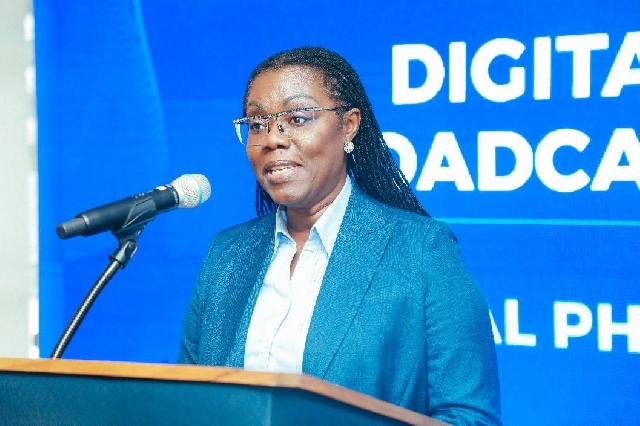 The Minister for Communications and Digitalisation, Honourable Ursula Owusu-Ekuful
The Minister for Communications and Digitalisation, Honourable Ursula Owusu-Ekuful
The Minister for Communications and Digitalisation, Ursula Owusu-Ekuful has officially launched the trial phase of the Digital Audio Broadcasting service in Ghana.
With the launch, Ghana becomes the first country in West Africa and the fourth on the continent to deploy the DAB service.
The DAB platform in Ghana is being implemented by the National Communications Authority (NCA), and involves 18 stations – 11 based in Accra and 7 in Kumasi.
With the commencement of the trial, listeners in the two cities will be able to access any of the stations using DAB+ receivers. The initial trial is expected to last six months after which the NCA will review and decide the next phase of its deployment.
Sharing the challenges Ghana faces with the current FM broadcasting service, the Director General of the NCA, Joe Anokye, said “there are severe constraints on frequency for FM Radio broadcasting services in many major cities in Ghana".
According to Mr. Anokye, as an Authority mandated under Section 2 of the Electronic Communications Act 2008, Act 775, to regulate the radio spectrum allocated for use by broadcasting organisations and providers of broadcasting services, it is important that the NCA comes out with a mechanism that addresses the frequency limitations for FM radio and for stations to reach more cities outside of their immediate area with the same programme content.
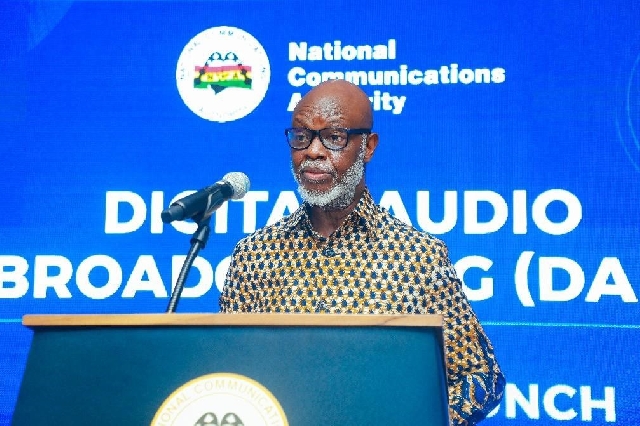 | Mr. Joe Anokye, Director General of the NCA, stated that the introduction of DAB is consistent with the Government’s vision for digital acceleration and transformation
| Mr. Joe Anokye, Director General of the NCA, stated that the introduction of DAB is consistent with the Government’s vision for digital acceleration and transformation
Mr. Anokye indicated that DAB in Ghana will not use the same frequencies as the traditional analogue FM stations as DAB is being deployed in the frequency range 174 to 230 MHz.
Mr. Anokye said in comparison to FM, DAB efficiently reduces signal interference thereby improving reception as well as energy efficiency by allowing up to 18 stations to share one transmitter.
The Director General called on all stakeholders in the value chain to help Ghana succeed in implementing this project especially the Electronic Communications Equipment Dealers since supply of DAB equipment is key in its implementation.
Delivering her keynote address, the Minister for Communications and Digitalisation (MoCD), Mrs. Ursula Owusu-Ekuful, highlighted the benefits and the pivotal role played by Ghana in embracing this ground breaking technology.
She touted Ghana’s unwavering commitment to embracing digital innovation, adding that it has propelled the country to the forefront of the transformative movement.
She emphasised that the MoCD has been steadfast in its mission to craft and shape policies that do not only facilitate the creation of information and communications infrastructure, but also drive the development of services that foster economic competitiveness.
The Minister added that her Ministry is committed to empowering all Agencies under MoCD to adapt to the ever-evolving technological landscape by adopting innovative strategies and approaches to their work.
She commended the NCA for their continuing efforts to deliver innovative and cutting-edge solutions.
“The National Communications Authority (NCA) is today launching the trial of yet another service, Digital Audio Broadcasting, in addition to its ground breaking media monitoring lab, the Common Platform, CERT, among many other innovations introduced in the past 6 years. These have all been focused on meeting the needs of the industry and ultimately, benefiting the consumer,” she said.
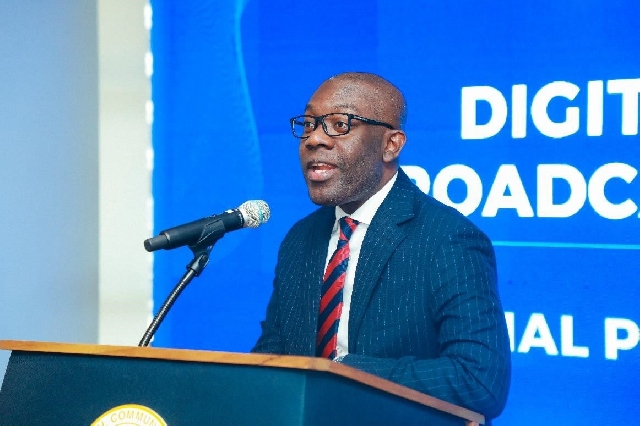 | Kojo Oppong Nkrumah, Minister for Information, highlighted Government’s support for Ghana’s digitalisation agenda
| Kojo Oppong Nkrumah, Minister for Information, highlighted Government’s support for Ghana’s digitalisation agenda
Speaking at the event, the Minister for Information, Kojo Oppong Nkrumah, said that Digital Audio Broadcasting (DAB) will provide significant economic benefits within the broadcasting industry.
He said with the relatively high operational costs of running traditional FM stations in Ghana, it was welcoming to have a technology that reduces these costs and improves efficiency of resources.
He further expressed optimism that DAB will encourage the production of content that contributes to societal growth and attracts more investors, leading to job opportunities.
The Minister applauded the NCA for their efforts and looked forward to the successful implementation of the DAB pilot programme together with a robust regulatory framework.
Stakeholders present at the launch included the Minister of Information, Kojo Oppong Nkrumah, the Deputy Minister for Communications and Digitalisation, Ama Pomaah Boateng, the NCA Board Chairman, Isaac Emmil Osei-Bonsu Jnr and some members of the Board as well as the Executive Secretary of the National Media Commission, George Sarpong.
Also present were the representatives of the 18 stations, Ghana Independent Broadcasters Association (GIBA), Advertisers Association of Ghana (AAG), Ghana Private Road Transport Union (GPRTU), PROTOA. Agencies under the MoCD and the Project Director of WorldDAB, Bernie O’neil were also present.
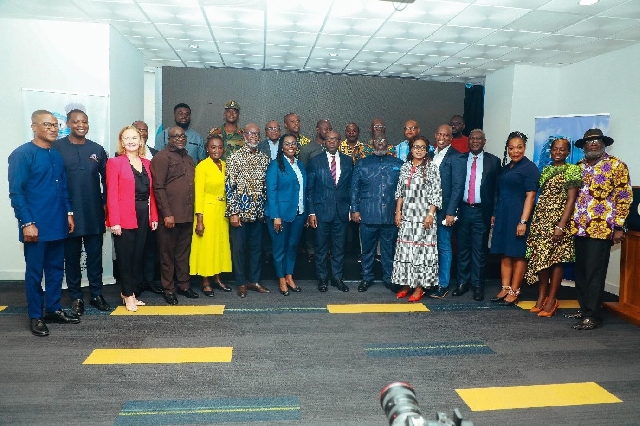 | A group photograph of dignitaries at the event
| A group photograph of dignitaries at the event
About NCA
The National Communications Authority, (NCA), was established by an Act of Parliament, Act 524 in December 1996, which has been repealed and replaced by the National Communications Authority Act, 2008 (Act 769). The Authority is the statutory body mandated to license and to regulate electronic communication activities and services in the country.
Source: classfmonline.com
Trending News
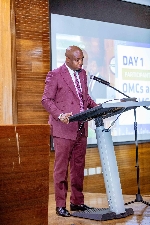
NDC Legal Director urges public to disregard claims over Saviour Church tragedy
14:19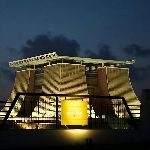
GAF Z9 crash: 3 days of national mourning starts today, says Presidency
08:30
YES holds spectacular graduation ceremony amid colourful displays
15:36
Defence Minister pays full cost of life-changing surgery for 9-year-old Setor
09:01
Bawumia commiserates with family of late Ibrahim Murtala Mohammed
11:55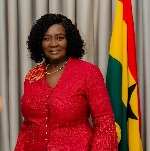
VP Opoku-Agyemang leads gov't, NDC officials to visit homes of 8 who perished in GAF Z9 crash
01:17
Constitution Review Committee wraps up nationwide public engagements in Kumasi
14:45
Ghana engages development partners on 2026–2030 National Decentralisation Policy
08:44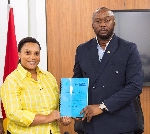
GIPC Secures 2,000 jobs for youth through YEA–Weave Ghana partnership
11:07
Speaker of Parliament mourns demise of senior state officials and an MP
01:06




